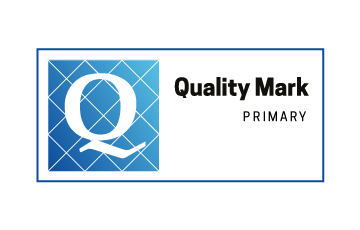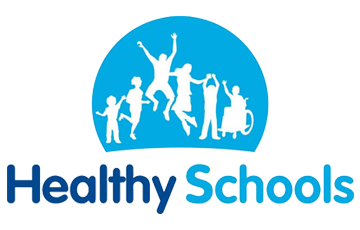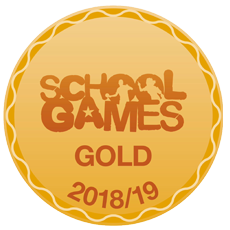Phonics
Phonics Curriculum Statement

“Synthetic phonics offers the vast majority of young children the best and most direct route to becoming skilled readers and writers.”
Sir Jim Rose, Rose Review of Reading 2006
“Once you learn to read, you will be forever free.”
Frederick Douglass
Intent
At Crow Orchard School, we are passionate about ensuring all children become confident and enthusiastic readers and writers. We believe that ‘Essential Letters and Sounds’ (ELS) provides the foundations of learning to read and this makes fluent reading and writing easier. Synthetic phonics is simply the ability to change a letter (grapheme) or letter group into sounds (phoneme) that are then blended together into a word. In other words, synthesising (put together/build up) sounds and blend together to make a word.
A Phoneme: You hear.
This is the smallest unit of sound in a word and the sound that a letter or group of letters make.
A grapheme: You see.
The written representation of a phoneme.
Children need to practise recognising the grapheme and saying the phoneme that it represents.
Our structure of the teaching of phonics is derived from the ‘Essential Letters and Sounds’ programme which includes teaching synthetic phonics, sight vocabulary, decoding and encoding words as well as spelling and accurate letter formation. It outlines five phonic phases, each with new phonemes to be learnt and increasing with difficulty as children progress through the phases. We strongly believe that teaching children to read and write independently is one of the core purposes of primary school. These fundamental skills not only hold the keys to the rest of the curriculum but have a huge impact on each child’s future.
Our curriculum intends to:
- Establish consistent practice, progression and continuity in the teaching and learning of phonics throughout the school with a focus on quality first teaching.
- Ensure that systematic synthetic phonics is the first approach pupils use to blend and segment phonetically decodable words and to attempt to read and write words that are more complex.
- Have robust assessment procedures to check progress, identify areas for development and identify pupils in need of intervention or further support. A Keep up not Catch Up approach.
- Enable pupils to apply their phonic knowledge in their reading and writing across the whole curriculum.
We have eight key priorities at Crow Orchard Primary School that underpin every subject area. We believe that by focusing on these key priorities our children will be ready to successfully meet the challenges of the next stage of their education and their lives.

Implementation
At Crow Orchard, we believe that reading and writing are essential life skills, and we are dedicated to enabling our children to become enthused, engaged, and successful lifelong reader and writers.
Phonics Teaching and Learning
We follow a validated systematic synthetic phonics programme; Essential Letters and Sounds (ELS). ELS is a method of learning which is based around letter sounds and phonics, blending them together to read and write words and using these learnt sounds in their reading and writing.
Using this structured programme, children will learn to read effortlessly so that they can then develop their comprehension skills. The sound and letter correspondence will also help our children build as their spelling skills allowing them to focus on grammar and compositional ideas in writing.
Children will learn phonics as soon as they enter school in our Foundation Stage: Daily phonic lessons become part of their everyday routine.
Lessons are carefully structured in a repetitive way, to introduce new sounds. Children will hear the sounds, say them, see them, read the sounds in words, write the words and build new vocabulary.
Modelling is a hugely important part of their learning process and all the teaching and support staff have been trained using ELS materials. The Reading Champion supports staff to effectively deliver the phonics programme and ensures that the quality of the delivery in school is consistently good.
Sounds have been divided up into small groups. Children will meet a small group of sounds each week. Some revision and practise weeks are built into the programme to consolidate. Children will practise the distinct sounds and will then practise blending the sounds together to make real and made-up words.
The children will learn mnemonics and rhymes to help remember the letters and how to write them.
Once the single letter forms have been learnt, children will then move onto sounds created by two or more letters.
The approach is to 'keep up' rather than 'catch up' and children will be continuously assessed. For those who have been identified, interventions are in place. There are three types of intervention in ELS, they are:
- Oral blending
- Grapheme-phoneme correspondence (GPC) recognition
- Blending for reading
To help the children practise their sounds, each child will receive a reading book which matches their phonic stage. These reading books are phonetically decodable and will ensure children get chance to practise the sounds they are learning, allowing them to develop speed and confidence. Phonics will be part of the everyday teaching routine all the way through into Year 2.
At the end of Year 1, all children are tested with the phonics screening test published by the Department for Education. These tests use real words and pseudo (made up) words to test each child's phonological knowledge and skills. The expectation is that all children should be able to pass this test, which means they know all of their phonic sounds.
Resources
All phonic teaching will be delivered using the ELS resources.
Inclusion
Teachers set high expectations for all pupils. They will use appropriate assessment to set ambitious targets and plan challenging work for all groups, including:
- More able pupils
- Pupils with low prior attainment
- Pupils from disadvantaged backgrounds
- Pupils with SEND
- Pupils with English as an additional language (EAL)
Impact
At Crow Orchard, the delivery of whole-class, high-quality first teaching with well-structured daily lesson plans, the use of consistent terminology by teachers, children and parents, the use of consistent resources that support effective teaching, the repetition and reinforcement of learning and regular and manageable assessment will ensure that all children ‘keep up’ rather than ‘catch up’.
Children will learn to read fluently and effectively from high quality phonics teaching. They will be able to recommend books to their peers, have a thirst for reading a range of genres, participate in discussions about books, and appreciate the joy and wonder of reading. This is a lifelong skill which they will take further into their adult lives.
We believe that reading is the key to all learning, and we embed this within our whole curriculum.
The English Subject Champion is: Mrs Jenna Smith

Useful Links

 Together
Together




